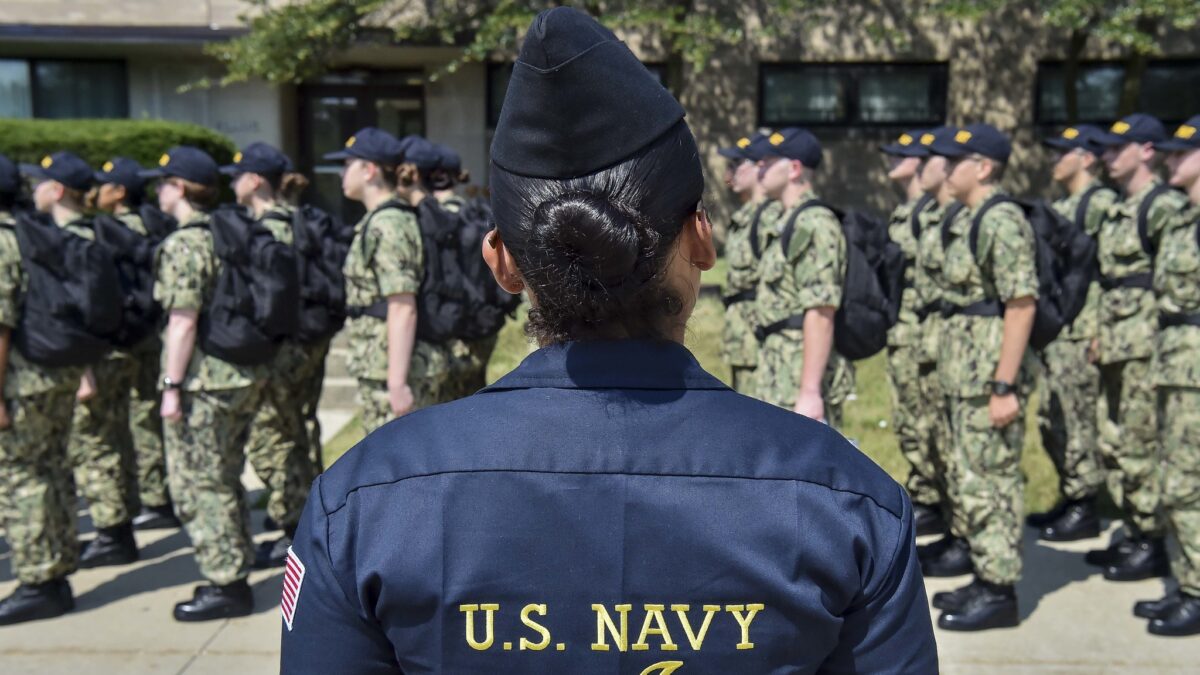
The U.S. Naval Academy’s use of race-based admissions policies violates provisions of the U.S. Constitution, a lawsuit filed on Thursday alleges.
Filed in the Northern District Court of Maryland by Students for Fair Admissions (SFFA), the suit, as summarized by Politico, argues that the academy is violating applicants’ Fifth Amendment rights by “engaging in racial balancing in their admissions of new classes.” According to SFFA, the Naval Academy is discriminating against applicants who are white and Asian in favor of those who are black, Hispanic, and Native American.
Defense Secretary Lloyd Austin, the Pentagon, Navy Secretary Carlos Del Toro, and two leading Naval Academy officials are listed as defendants in the suit.
“America’s enemies do not fight differently based on the race of the commanding officer opposing them,” the lawsuit reads. “Sailors must follow orders without regard to the skin color of those giving them and battlefield realities apply equally to all sailors regardless of race, ethnicity or national origin.”
SFFA has asked the court to issue a judgment declaring the Naval Academy’s consideration of race in its admissions policies as a violation of the Fifth Amendment. The group also requested the court issue an injunction barring the academy from using these practices.
A nonprofit dedicated to fighting race-based college admissions policies, SFFA is the group that brought its lawsuits against Harvard and the University of North Carolina’s race-based admissions policies to the U.S. Supreme Court this past year. In a 6-3 decision, SCOTUS sided with SFFA and ruled that the aforementioned universities’ consideration of applicants’ race during the admissions process violates the 14th Amendment. The decision effectively ended affirmative action policies for institutions of higher education.
While legacy media outlets have interpreted a footnote included in the majority opinion to mean that U.S. military academies are exempt from the ruling, legal specialists have argued that such an argument isn’t true. Writing in these pages, William Woodruff, a professor of law emeritus and retired Army lawyer, noted how SCOTUS “did not hold that equal protection principles do not apply to the military service academies’ admissions practices” and did not “carve out an exception to the principle that race-based college admissions policies violate the Constitution.”
The footnote in question “stated that without a fully developed record examining military-specific interests, the court will not address — much less uphold, affirm, reject, or condemn — whatever policies the service academies use in their admissions process,” Woodruff wrote. “Declining to address an issue because it was not part of the underlying litigation is not affirming, exempting, carving out, or otherwise approving of a particular practice.”
In addition to suing the Naval Academy, SFFA filed a lawsuit against West Point last month, challenging the institution’s alleged use of race and ethnicity in its admissions process.









